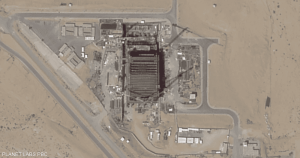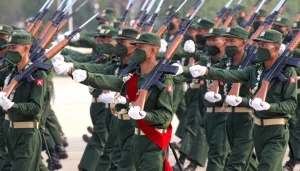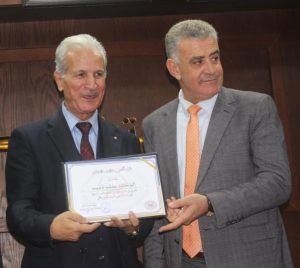Tunisian non-governmental organizations condemned the dissolution of the ‘Access to Information Authority,’ a key achievement of the 2011 revolution, considering it a step that further restricts rights and freedoms in the country. The independent authority was established by a basic law issued on March 24, 2016, and its nine members—journalists, lawyers, judges, and statisticians—were elected by parliament in July 2017. The Tunisian government confirmed the authority’s dissolution and the closure of its headquarters since early August 2025, with its employees reintegrated into the government.
Ziad Debbar, head of the Tunisian Journalists Syndicate, told AFP that after this “secret closure,” access to information has become more restricted. He added, “There can be no talk of press freedom without access to information. Now, only official narratives will remain, leading to propaganda work.”
The Tunisian Journalists Syndicate previously condemned the decision, calling it “an imposed reality that demolishes one of the democratic building blocks, the independent bodies.”
Ramadan Ben Omar, spokesperson for the Tunisian Forum for Economic and Social Rights, said, “It is clear that the authorities want to close all sources of information. It is a political choice to abandon constitutional bodies” established after 2011. He added, “The field of rights and freedoms is becoming increasingly suffocated.”
The authority had administrative judicial powers to resolve disputes between information requesters and the administration, issuing binding preliminary decisions to provide the requested information, with the possibility to appeal to the administrative court.
Its mandate included monitoring public institutions’ compliance with the law, ensuring implementation of its decisions by providing necessary data to information seekers, and facilitating access for citizens, journalists, and organizations to official information.
Through these powers, the authority became an important tool to protect citizens’ rights and support investigative journalism, helping to uncover corruption cases and hold the administration legally accountable.
It issued hundreds of decisions favoring activists, organizations, and journalists against administrative opacity, contributing to exposing significant corruption files in various sectors, making it a cornerstone for accountability and transparency.
Since President Kais Saied’s decision to monopolize all powers on July 25, 2021, local and international NGOs have criticized the decline of rights and freedoms in Tunisia.
Many journalists, bloggers, lawyers, and human rights activists are prosecuted under a presidential decree combating “false information,” which is strongly criticized by human rights defenders.













Recommended for you
Talib Al-Rifai Chronicles Kuwaiti Art Heritage in "Doukhi.. Tasaseem Al-Saba"
Exhibition City Completes About 80% of Preparations for the Damascus International Fair Launch
Unified Admission Applications Start Tuesday with 640 Students to be Accepted in Medicine
Egypt Post: We Have Over 10 Million Customers in Savings Accounts and Offer Daily, Monthly, and Annual Returns
His Highness Sheikh Isa bin Salman bin Hamad Al Khalifa Receives the United States Ambassador to the Kingdom of Bahrain
Al-Jaghbeer: The Industrial Sector Leads Economic Growth